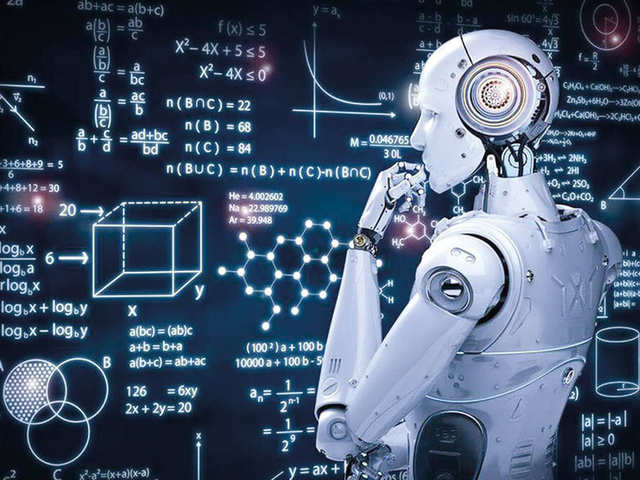Artificial Intelligence
Artificial intelligence (AI) makes it possible for machines to learn from experience, adjust to new inputs and perform human-like tasks.

Why is Artificial Intelligence important?
The term artificial intelligence was coined in 1956, but AI has become more popular today thanks to increased data volumes, advanced algorithms, and improvements in computing power and storage. Using these technologies, computers can be trained to accomplish specific tasks by processing large amounts of data and recognizing patterns in the data.
01.
AI automates repetitive learning and discovery through data.
Instead of automating manual tasks, AI performs frequent, high-volume, computerized tasks. And it does so reliably and without fatigue. Of course, humans are still essential to set up the system and ask the right questions.
02.
AI adapts through progressive learning algorithms
To let the data do the programming. AI finds structure and regularities in data so that algorithms can acquire skills. Just as an algorithm can teach itself to play chess, it can teach itself what product to recommend next online. And the models adapt when given new data.
03.
AI analyzes more and
deeper data
Using neural networks that have many hidden layers. Building a fraud detection system with five hidden layers used to be impossible. All that has changed with incredible computer power and Big Data.
04.
AI adds intelligence
Many products you already use will be improved with AI capabilities, much like Siri was added as a feature to a new generation of Apple products. Automation, conversational platforms, bots and smart machines can be combined with large amounts of data to improve many technologies. Upgrades at home and in the workplace, range from security intelligence and smart cams to investment analysis.
05.
AI achieves incredible accuracy
Through deep neural networks. For example, your interactions with Alexa and Google are all based on deep learning. And these products keep getting more accurate the more you use them. In the medical field, AI techniques from deep learning and object recognition can now be used to pinpoint cancer on medical images with improved accuracy.
06.
AI gets the most out of data.
When algorithms are self-learning, the data itself is an asset. The answers are in the data. You just have to apply AI to find them. Since the role of the data is now more important than ever, it can create a competitive advantage. If you have the best data in a competitive industry, even if everyone is applying similar techniques, the best data will win.
Applications of AI

AI for Health Care
AI capabilities – such as machine learning, computer vision, natural language processing, and forecasting and optimization – can unleash the full potential of data to improve population health and solve some of the greatest health care challenges. This necessary evolution will enable health care organizations to:
- Improve patient outcomes.
- Control costs.
AI for Retail
AI provides virtual shopping capabilities that offer personalized recommendations and discuss purchase options with the consumer. Stock management and site layout technologies will also be improved with AI.
- Replace search with conversational commerce.
- Tailor efforts to specific customers
- Anticipate your customer’s next move


AI for Manufacturing
AI can analyze factory IoT data as it streams from connected equipment to forecast expected load and demand using recurrent networks, a specific type of deep learning network used with sequence data.
- Avoid costly scrap and rework.
- Identify areas for improvement.
- Find early indicators of potential quality issues.
